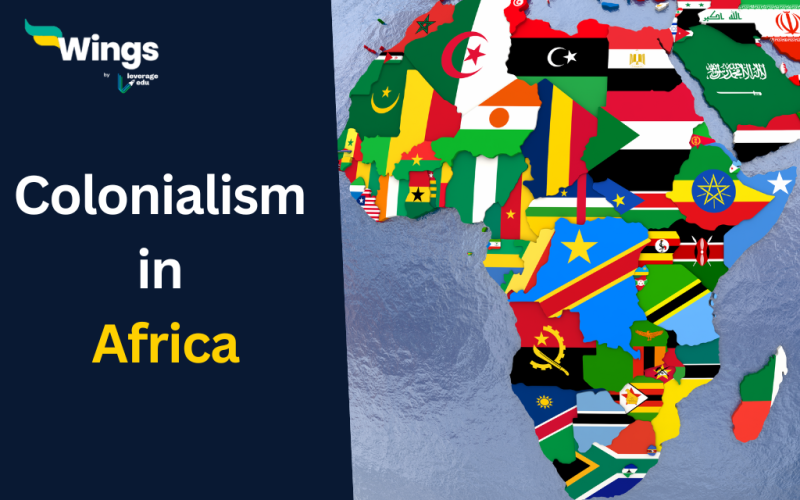Hey, guys! Mr. Owl 
Colonialism in Africa: Various regions of the African continent faced colonialism for a long time. Many European nations exploited people of African countries. Colonialism in Africa is something that must be covered during the preparation of upcoming government exams. Questions may revolve around the beginning of Colonialism in Africa to Decolonisation in Africa. To learn about all the necessary information regarding this crucial event, go through the blog below.
Table of Contents [show]
 Colonialism in Africa
Colonialism in Africa
Colonialism in Africa had its origins in the late 15th century, marked by European powers establishing trade posts along the African coast. The full-fledged colonization, referred to as the “Scramble for Africa,” commenced in the late 19th century.
- Countries Colonised Africa: The key European powers involved in colonizing Africa were Britain, France, Germany, Belgium, Portugal, and Spain. Italy also played a role, albeit on a smaller scale.
- Story Behind Colonialism in Africa: Various methods were employed. Military conquest was used to subjugate African kingdoms and empires, diplomacy through treaties granted control over territories, and economic coercion pressured African rulers into European dominance.
Must Read: What is Colonialism: Definition, History, and Significance
 Timeline of Colonialism in Africa
Timeline of Colonialism in Africa
Following is a very concise timeline of colonialism in Africa, do check it out!
- 15th Century: Portuguese trading posts were established in Africa.
- Late 19th Century: The “Scramble for Africa” begins as European powers vie for control.
- 1885: The Berlin Conference divides Africa among European powers.
- 1900: Nearly all of Africa is colonized by European nations.
- 1957: Ghana became the first sub-Saharan African country to gain independence.
- 1960: Termed the “Year of Africa,” 17 African nations gain independence.
- 1975: Mozambique and Angola attain independence.
- 1990: Namibia secures independence from South Africa.
- 2010: South Sudan emerges as an independent nation.
 How did Colonialism Affect Africa?
How did Colonialism Affect Africa?
Colonialism affected Africa in the following ways
- Loss of millions of lives through wars, disease, and forced labour.
- Destruction of African cultures and languages.
- The exploitation of African resources for the benefit of European powers.
- Underdevelopment due to insufficient investment in education and infrastructure.
- Creation of artificial borders that divided ethnic groups and contributed to conflicts.
- The emergence of authoritarian regimes in post-colonial Africa.
Also Read: 
 Key Figures and Events in Decolonization
Key Figures and Events in Decolonization
Below, we have mentioned some important events that helped Africa in Decolonization.
- World War II: Weakened European powers and made it challenging for them to maintain their African colonies.
- Nationalism: The rise of nationalism inspired independence movements fighting for freedom from European rule.
- The Cold War: The United States and the USSR supported African independence movements as part of their Cold War strategies.
- Pan-Africanism: This movement advocating unity among African peoples played a pivotal role in Africa’s decolonization.
Also Read: What is Socialism? Definition, History, and Significance
Notable figures in the decolonization process include:
- Kwame Nkrumah (Ghana)
- Nelson Mandela (South Africa)
- Patrice Lumumba (Congo)
- Jomo Kenyatta (Kenya)
- Julius Nyerere (Tanzania)
“Kiddos, I’ve answered all your queries with the utmost precision that I was capable of. Now, I’ll be taking my leave, but if you think I might have missed something, do check out the FAQ section or drop a comment. I always respond!
FAQs
The “Scramble for Africa” was a period in the late 19th century when European powers aggressively competed to colonize and control various regions of Africa continent.
The Berlin Conference of 1885 resulted in the division of Africa among European powers, essentially legitimizing their colonial ambitions in the continent.
Economic neocolonialism refers to contemporary economic exploitation, where foreign powers or corporations exert control over African economies, often at the expense of the local population.
RELATED BLOGS
| World War 2: History and Causes | Treaty of Versailles: A Prelude to WW2 |
| English Industrial Revolution | ️Industrialisation and Globalisation |
| World War 1: History and Causes | What is Imperialism? |
Hope you have gotten all the relevant information about ‘Colonialism in Africa! If you want to know more about topics like this, then visit our general knowledge page! Alternatively, you can also read our blog on general knowledge for competitive exams!
 One app for all your study abroad needs
One app for all your study abroad needs















 45,000+ students trusted us with their dreams. Take the first step today!
45,000+ students trusted us with their dreams. Take the first step today!
